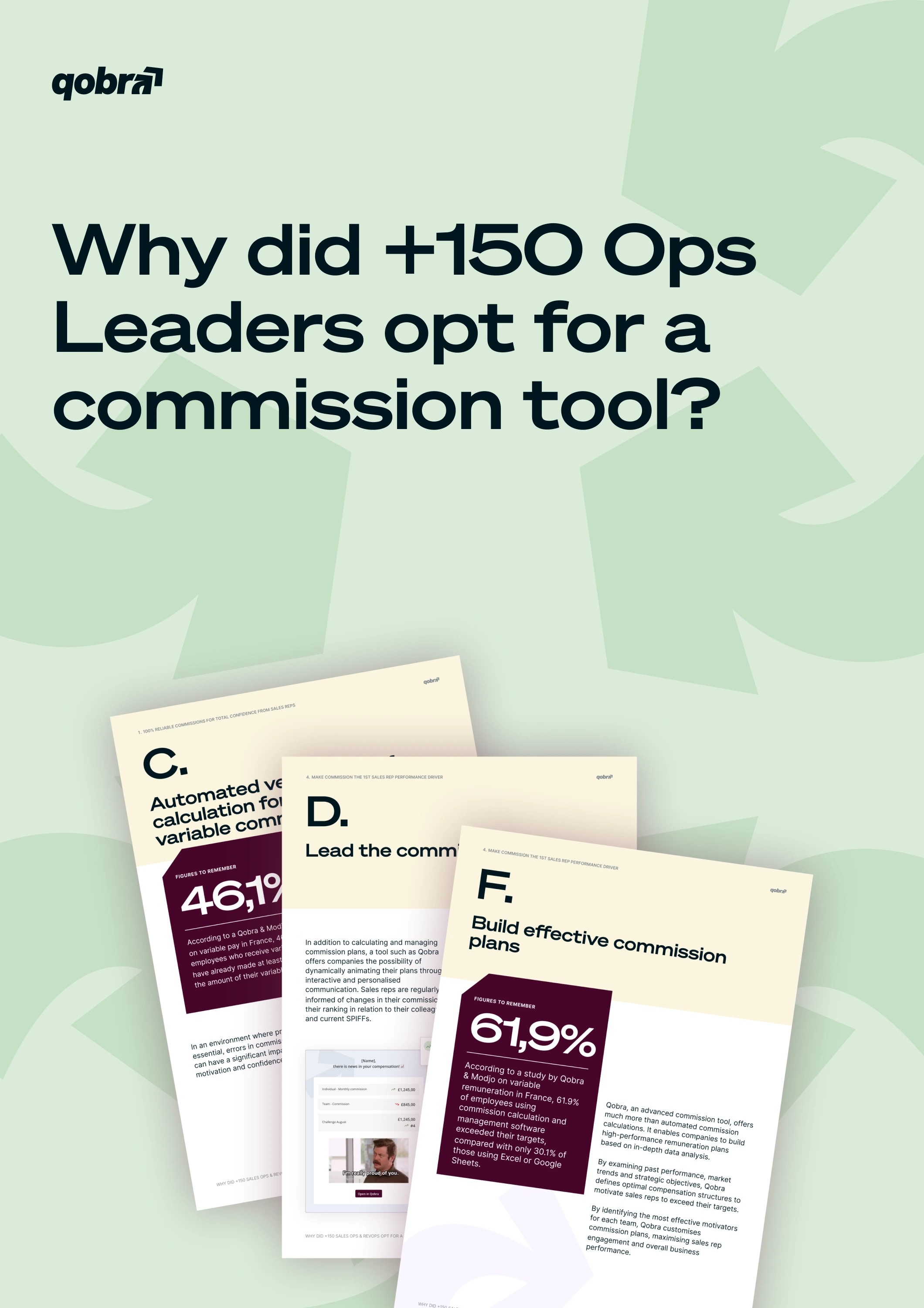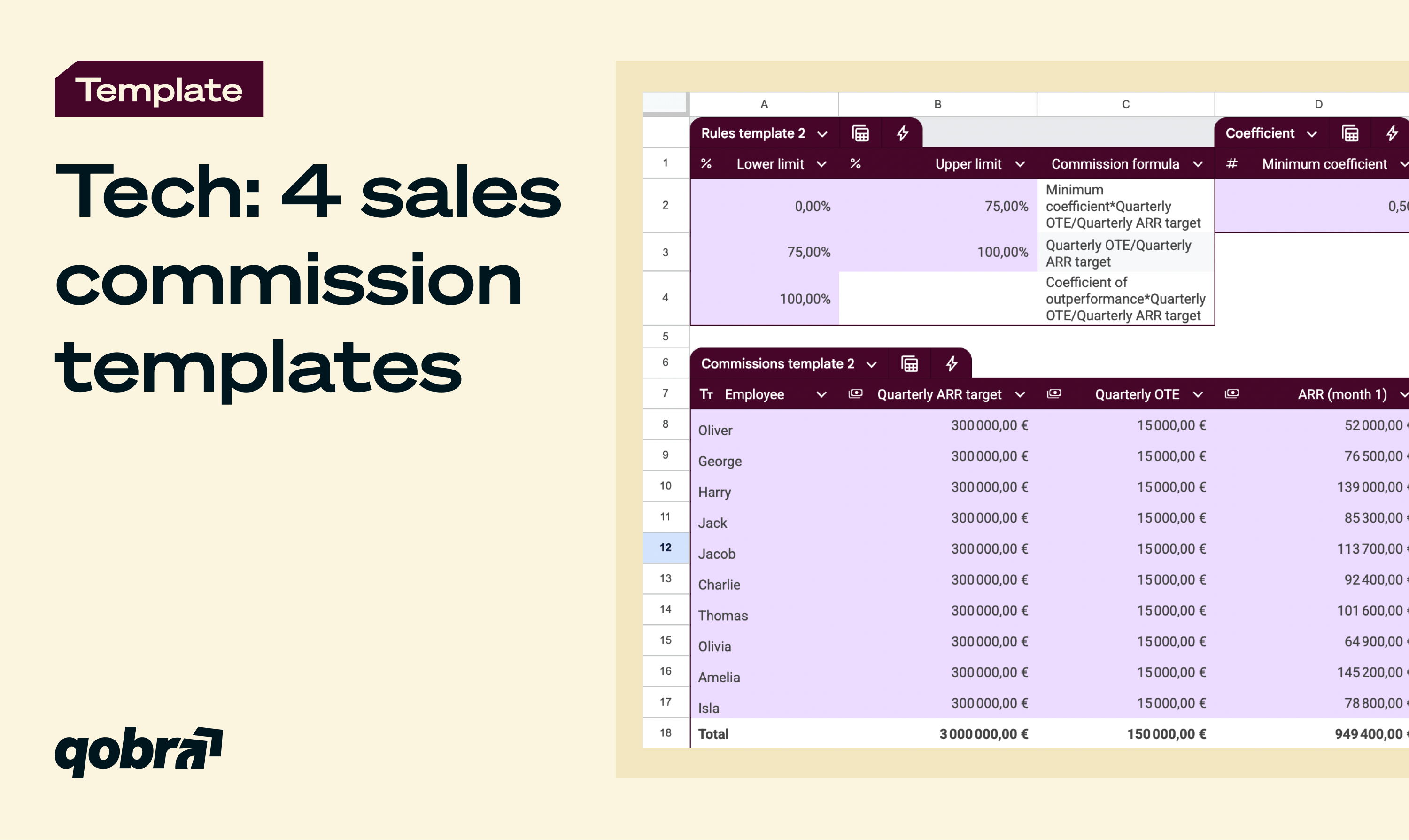Ready to see Qobra in action? Discover and try our platform now for free
Product TourIncentive plans: Definition
- Incentive Plan: A structured program implemented by businesses to motivate and reward employees or partners based on performance or achieving specific goals.
- Motivation and Performance: Designed to align individual or team objectives with company goals, fostering productivity and engagement.
- Types of Incentives: Can include monetary rewards, bonuses, stock options, recognition programs, or other benefits.
- Purpose: To enhance employee satisfaction, increase retention, and drive desired business outcomes.
- Customization and Flexibility: Incentive plans are often tailored to fit different roles, departments, or organizational strategies for maximum effectiveness.
What is an Incentive Plan?
An incentive plan in business is a formal scheme aimed at encouraging employees, sales teams, or other stakeholders to improve their performance by offering rewards tied to specific achievements or behaviors. These plans serve as motivation tools that help align individual efforts with overall business objectives, ensuring that employees are engaged and driven to contribute to the company’s success. By linking compensation or recognition directly to results, incentive plans create a performance-oriented culture within the organization.
Want to know more? Discover Incentive plan: Our guide to understand it all.
Why are incentive plans important in business?
Incentive plans are essential components in the toolkit of modern businesses seeking to motivate employees, boost performance, and achieve strategic goals. When well-designed and fairly implemented, they create a win-win scenario where individuals feel valued and recognized, and companies enjoy improved productivity and competitive advantage. Understanding the fundamentals and nuances of incentive plans allows organizations to harness their full potential for driving success.
Types of Incentive Plans
Businesses can implement a variety of incentive plans depending on their goals and workforce structure:
- Monetary Incentives: Bonuses, commissions, profit sharing, or stock options directly linked to performance metrics.
- Non-Monetary Rewards: Recognition programs, additional vacation days, professional development opportunities, or gifts.
- Team-Based Incentives: Encourages collaboration by rewarding collective achievements rather than individual results only.
- Long-Term Incentives: Stock grants or options that vest over several years to encourage employee retention and loyalty.
- Spot Incentives: Immediate rewards given for exceptional performance on specific tasks or projects.
How to create an effective incentive plan ?
Designing a incentive plan requires careful planning and alignment with business objectives:
- Clear Objectives: Define measurable outcomes that the plan intends to influence.
- Transparency: Employees should fully understand how their efforts translate into rewards.
- Fairness: The criteria for earning incentives must be equitable and attainable.
- Regular Evaluation: Periodically review and adjust the plan to ensure its ongoing relevance and effectiveness.
- Communication: Keep the lines open for feedback and ensure recognition is visible and meaningful.







